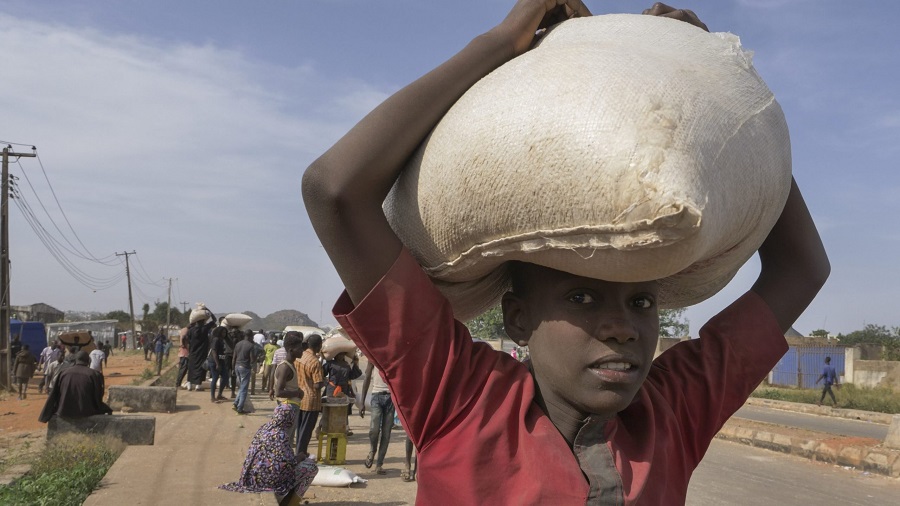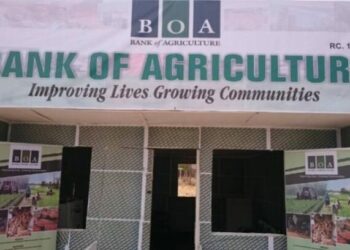Food security has always been an issue for Governments and Policy Makers the World over from the dawn of time.
Food is a basic need of all people and food security is considered a component of National Security especially in the 21st Century. Hence, what to do with surplus food during the season of bountiful harvests and how to manage food in the time of famine is a never ending challenge.
READ: This report explains why Nigerians are bent on leaving the country
READ: Lagos Multi-billion naira rice mill nears completion
In the Bible; the Book of Genesis 41 verses 22-31 and 47 verses 13-27, tell the story of Joseph a young Hebrew Man and how his interpretation of Pharaoh’s dream led to the creation of the first Strategic Grain Reserves in the World.
Joseph’s ideas in ancient Egypt, helped that Civilization survive the onslaught of famine that affected all other Kingdoms and groups of that time and have been replicated in varying formats since then. The basic idea has remained the same though, and this has become an integral part of food security for Nations.
READ: Covid-19: World Bank discloses when Sub-Saharan Africa will fall into recession
A Strategic Grain Reserve (SGR) is a government stockpile of grain for the purpose of meeting future domestic (and sometimes International) needs. Government sets aside a part of the public funds to enable it buy these grains and invests heavily in building giant Silos that are used for proper storage of the grains.
In addition to their primary function of ensuring the year-round availability of food in the event of emergencies, the SGR can also be used to help in price modulation. If the price of a particular grain becomes too low as to make it economically unviable for Farmers to produce it, the Government comes and mops up the grains so as to drive up the price, and when it becomes too expensive, the government releases from its stockpile to help stabilise the price.
READ: NCC grants national roaming services approval to MTN, 9mobile
In Nigeria, the SGRs are located in all the States of the Federation (Silos are at different stages of completion and operation) and the grains are released based on the assessment and advice of relevant departments of government.
The National Agricultural Seed Council (NASC) also conserves seeds for onward distribution to Farmers during the planting seasons. Some of these seeds are kept in Silos, but are not edible and therefore separate from the SGR.
Recent incidences of looting of warehouses all around the Nation, have brought to the fore the importance, dangers and complete lack of knowledge of most Nigerians of the SGR and the Stockpile of grains and seedlings kept as a buffer for the Nation.
The Government of Ekiti State raised an alarm on Saturday that huge quantities of poisonous items, mistaken for food yet to be distributed as COVID-19 palliatives, were looted in warehouses in Ado-Ekiti on Friday according to Premium Times an Online news medium.
READ: Soybean Futures reach 2-year high, following U.S sales to China
According to the Paper, the Federal Government’s silos, the ADP warehouse and the State Emergency Management Agency (SEMA) stores, all in Ado- Ekiti, were attacked by hoodlums under the guise of seeking Covid-19 palliatives. Unfortunately, the items carted away were Single Super Phosphate and NPK fertilisers, which they erroneously thought was “Garri’’ (Cassava grains).
Also on Sunday, October 25, 2020, hoodlums broke into the NACS Warehouse in Bukuru, Jos, Plateau State and looted wheat seeds worth millions of Naira. In both instances, Government has appealed to people not to consume these items because they are not fit for human consumption as they have been treated with Agrochemicals and are only suitable for planting.
Explore Data on the Nairametrics Research Website
Lootings such as these are presently going on in different parts of the nation and the grains so looted would find their way into the Markets and would be sold alongside normal foodstuffs. There is also the prospect of depletion of seeds for the next planting season which was already projected to be hit by floods in some Northern States.
READ: Lagos state moves against fake news and inciting messages merchants
Concerted efforts must now be made to ensure that no further looting of the SGR is experienced, even as Government intensifies efforts to ensure all the ongoing construction/rehabilitation of Silos is completed, so that the idea behind the establishment of the SGR can be realised.
























Our so called politicians are the looters in Nigeria but they call ordinary citizens looters. the people that stored what is suppose to be giving to the masses for their selfish interest and those poor people that discover it and packed. who are the looters
@OKOSUN CHRIS, Nigerian politicians are drawn from the general population, so it’s not surprising that they all share the same looting mentality.
Btw, the CA-COVID palliatives were donated for distribution from time to time during the pandemic, so why do some people think it should have all been distributed on Day One?! Anyway, let just hope these looters are not going to be selling the poisoned stuff to the less fortunate.